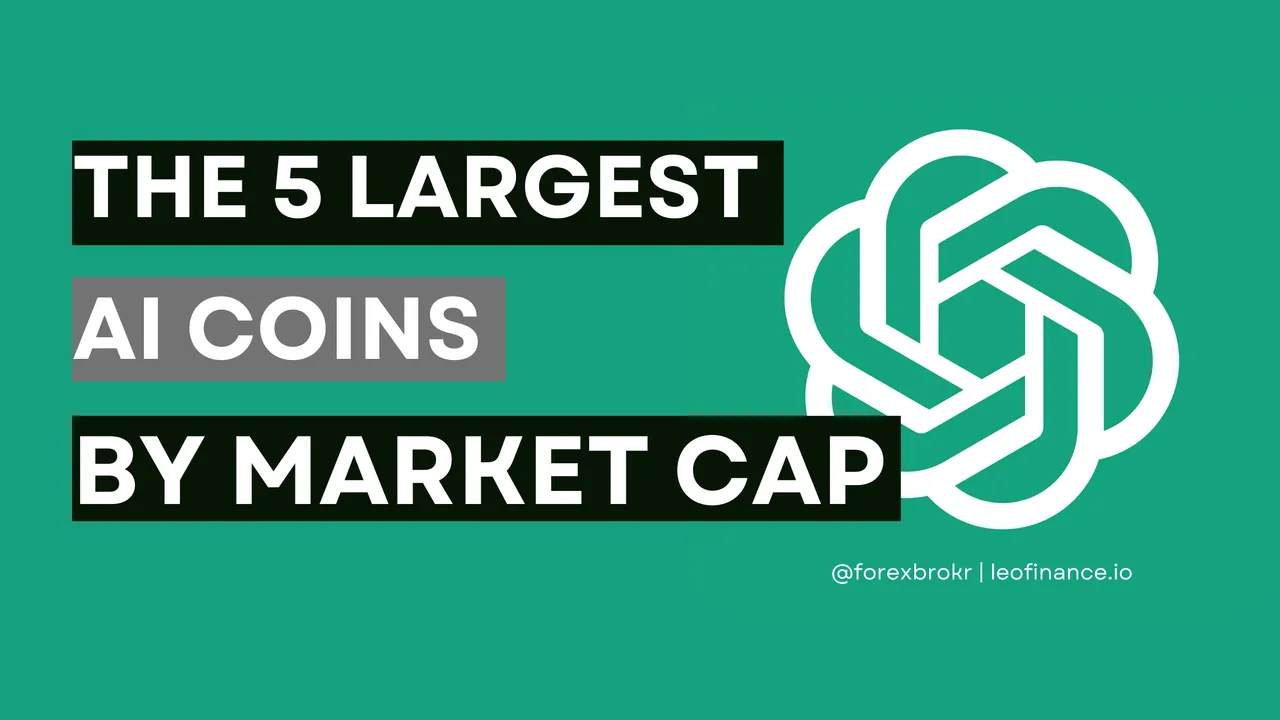
Direct from the desk of Dane Williams.
In the ever-evolving crypto landscape, artificial intelligence (AI) has emerged as the latest buzzword.
Its potential to transform various tech sectors and get people rich on hype alone, has sparked immense interest and exploration.
But did you know that AI and cryptocurrency have also forged a compelling connection?
Artificial intelligence and cryptocurrency, although distinct domains in their own right, have found a way to converge.
Thus presenting an exciting opportunity for us as crypto investors.
At its most basic sense, the integration of AI and crypto revolves around leveraging the unique properties of blockchain technology to enhance the capabilities of AI applications.
Blockchain provides a decentralised framework that ensures security, immutability and trust in the AI ecosystem.
By incorporating AI algorithms and models into blockchain networks, new possibilities emerge, such as decentralised AI marketplaces, autonomous machine-to-machine communication, and secure data sharing.
Ultimately, this integration opens doors to a more inclusive and democratised AI landscape.
Now before I get into the list, you may be wondering what actually makes a coin an AI coin?
I mean ChatGPT and the like doesn’t in any way shape or form NEED a coin to work, so what is the point?
Well, while the term "AI coin" is not officially defined, it generally refers to cryptocurrencies that focus on enabling, enhancing, or implementing AI technologies.
AI coins don’t make the algorithm itself work, but are instead designed to support and facilitate AI-related applications.
AI coins (as part of their parent projects) utilise blockchain technology to address challenges such as scalability, privacy and trust in AI systems.
They may provide platforms for AI developers to share and monetise their algorithms, create networks for autonomous machine-to-machine interactions, or even establish secure data marketplaces.
The possibilities are vast.
But the real distinguishing factor of AI coins lies in their commitment to advancing the field of artificial intelligence through the integration of blockchain and crypto-based solutions.
Make sense?
Okay cool, because in the next section, I'm going to get specific by exploring the 5 largest AI coins by market cap (in July 2023).
Each of these coins represents a distinct approach to incorporating AI and blockchain, showcasing the diversity and innovation within the AI coin market.
From democratising high-performance computing to creating decentralised AI marketplaces, enabling autonomous machine communication, and revolutionising data sharing and cloud computing.
These are 5 of the best AI coins that exemplify the transformative potential when AI and crypto are integrated.
1. Render (RNDR)
First up on our list is Render (RNDR), an AI coin that has been gaining significant attention.
Render aims to democratise access to high-performance computing by utilising blockchain technology.
With RNDR, users can tap into a global network of idle GPUs, enabling them to render complex graphics and images quickly and efficiently.
This project has garnered support from both individual creators and large-scale enterprises, making it a force to be reckoned with in the AI coin market.
2. SingularityNET (AGIX)
Next, we have SingularityNET (AGIX), a decentralised marketplace for AI services.
SingularityNET aims to create a platform where AI developers and users can connect, collaborate, and trade AI algorithms and models.
By leveraging blockchain technology, AGIX ensures transparency, security, and fair compensation for AI contributors.
This project has garnered attention for its potential to fuel the growth of AI applications and facilitate a decentralised AI ecosystem.
3. Fetch.ai (FET)
Moving along, we have Fetch.ai (FET), a unique AI coin that focuses on autonomous machine-to-machine (M2M) communication and coordination.
Fetch.ai aims to create a decentralised network where devices can connect, communicate, and transact with one another autonomously.
By combining artificial intelligence, blockchain technology and multi-agent systems, FET aims to enable a future where machines can independently negotiate then carry out complex tasks.
All without any sort of human intervention whatsoever.
4. Ocean Protocol (OCEAN)
Fourth on the list is Ocean Protocol (OCEAN), a blockchain-based data sharing platform that empowers people to monetise then access data in a secure and privacy-preserving manner.
OCEAN creates an ecosystem where data providers can sell their data directly to the consumers who require it, without the need for intermediaries.
With its emphasis on data privacy and decentralised data marketplaces, Ocean Protocol has captured the attention of many organisations seeking to leverage AI.
All while giving them the ability to maintain control over their data.
5. Akash Network (AKT)
Last but not least, we have Akash Network (AKT), a blockchain-based decentralised cloud computing platform.
I’m personally not 100% sure AKT counts as an AI coin, but CoinGecko says otherwise so here we are.
Akash Network leverages its blockchain infrastructure to create a marketplace for idle cloud computing resources.
By connecting those with surplus computing power to those in need, AKT aims to provide affordable and accessible cloud computing services… particularly for AI applications (ah, there we go).
This approach reduces costs and enhances scalability, making it an attractive proposition for developers and organisations in the AI space.